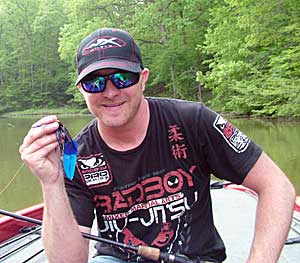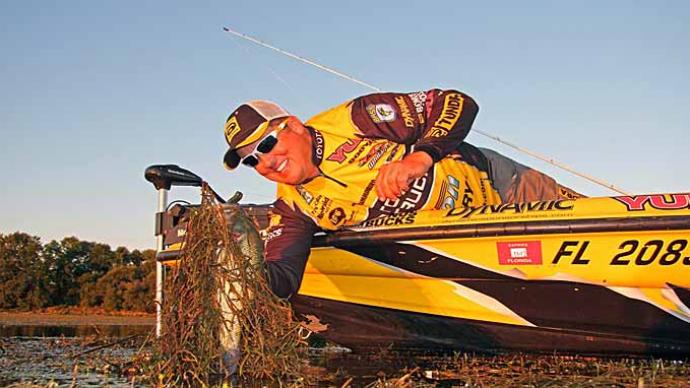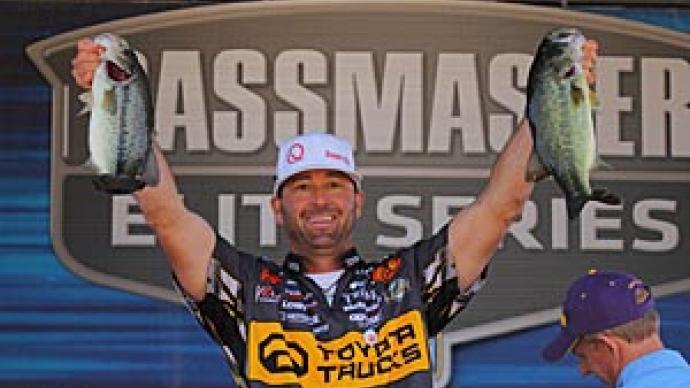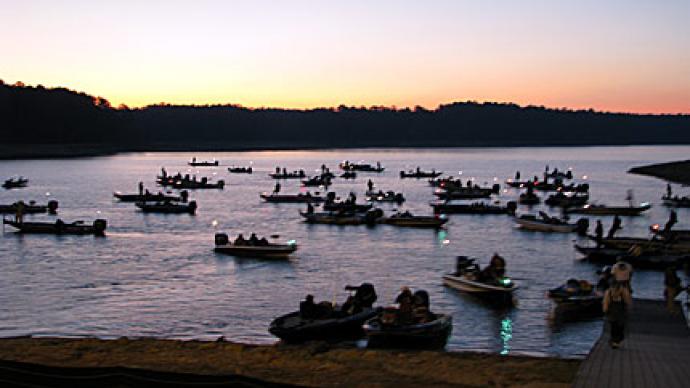
If I charged a fee every time, I answered the question, “how do I get sponsors?” I would probably have enough money to hang out with Bill Gates and his rich buddies. Like many things related to fishing, this question has no clear-cut, single-sentence answer. When you start wanting to get paid by a company to go fishing, the sport takes on a whole new view.
From an angler’s perspective, sponsors are there to help with the never-ending expenses associated with competitive fishing. Whether it is in the form of free products, discounts on boats and other items, or the ever-popular monthly stipend, sponsorship contracts will help reduce stress, sort of. Companies, however, look at sponsorships from a whole different angle. Their main objectives are to increase brand recognition and generate additional revenue. They are always looking for new and cost-effective ways to get more people to see and buy their products.
Before you start firing off a bunch of letters asking for sponsorships, there are certain things that you need to do. First and foremost, you need to ask yourself why a company would even want to sponsor you. Suppose you answer that you win many local tournaments and like their products, you might reconsider your approach. Industry-leading companies do not care that you won 15 local club tournaments. Why would they care? Will this make them any money or help cost-effectively build their brand? Quite frankly, the answer is No.
These large corporations will get almost no return on investment by sponsoring an angler that does nothing more than competing in local or regional tournaments. These events are not generally televised, get little fan-fare, and have almost no media coverage. The two minutes that you are on stage in front of the couple hundred people in the crowd is not going to impact sales. That is just the fact that most anglers have to realize. You have to have a way to reach a much broader market, or a company will have little reason even to give you a second look.
Sponsors are looking for the most cost-effective way to help their brands. When asked about some of the things he is searching for in a potential team member, Wiley X Eyewear’s (WileyX.com) Director of Outdoors Sales, Ray Hill, said, “Obviously credibility, influence, experience and visibility within the core markets and industry Wiley X caters to as well as those that we are looking to expand. We continue to strive to build the Wiley X brand on a global scale and look to partner with those where the result is mutually beneficial and helps each party more effectively achieve their goals.”
When presenting yourself and your ideas to the company, you need to make sure your proposal and everything associated with it is well written, accurate, factual, and professional-looking. Certain things will get your email deleted, or your resume tossed straight in the trash can. According to Ray Hill, some examples are “An application that is poorly presented or has limited information, lacks examples of accountability, resources, outreach tools and affiliations that help clearly define the true potential ROI of the suggested sponsorship.”
Once you can prove that you have some form of value to a company, it is then that you have to determine what your services are worth. If you are a newcomer, companies will not pay you any actual cash unless you are incredibly talented (or lucky). In most cases, if they decide to take a chance on you, they will offer you a minimal amount of free or reduced-priced products. This is fine to an extent, but as Bassmaster Classic qualifier Ish Monroe once told me, “I can’t eat a box of crankbaits, and I can’t pay my bills with them either.”
When you think about his statement, it puts it all into perspective. The return received for your work has to be of some benefit to you. You should not just agree to a sponsor’s terms because it will get you a couple of spools of line and a cool patch on your shirt. If you apply for a “regular” job and you request $15 per hour, but the company only wants to pay minimum wage, chances are you will not take the job. Dealing with sponsors should be no different.
Applying for sponsorship is no different from applying for a job. You will have specific duties to perform and expectations that you must live up to. You will ultimately be let go if you cannot meet these requirements. The bottom line is to attempt to get a level of compensation that you feel is equitable and beneficial to both parties. Do not sell yourself short or jeopardize your integrity over a few hundred dollars worth of fishing tackle. Also, do not get arrogant and demanding towards your sponsors. They don’t have the time or patience to deal with a “diva” Bass angler, and there are a million other people that will take your place in a second.
Once you sign on the dotted line, your non-fishing activities can also significantly impact your sponsors. You have to be sure that nothing you do can bring negative attention to the companies you represent. Most contracts will have a section that deals with moral and ethical behavior. If you violate these codes of conduct, your contract may be terminated. Custom Jig Maker and owner of Missouri-based Siebert Outdoors (SiebertOutdoors.com) said, “I run my business pretty strict. I treat customers with honesty, integrity, and full support. I'd terminate the relationship if I caught a prostaff member lying, cheating, or doing something immoral. I do not want to be associated with anything unethical. It’s not my beliefs or my company’s practice. There are more than enough good quality, honest fisherman/pro-staffers looking for sponsorship.”
I am confident that most sponsorship seekers do not fully understand what sponsors will expect from them. You will not get paid to fish and say that you used their product when you cross the weigh-in stage. FLW Tour Pro Dave Lefebre said the biggest misconceptions people have when it comes to the relationship between Anglers and Sponsors is “Probably that it's easy, you get a lot of free stuff, and it's all roses. It’s work, and you need to stay on top of things. It helps to have long-lasting sponsors and solid relationships, but they still want to see results. There is a lot of pressure to perform, and it can be stressful at times.” Lefebre also said, “I fish a lot, but I work for sponsors more, and it is well worth it. I win considerable money fishing tournaments, but I would not have been able to stay on tour for 11 years without sponsors and would not have even survived my first year without some help. Article interviews, radio, website, blogs, TV shows, Seminars, Twitter, Facebook; it all matters, and I'm constantly working in one of those areas when I'm not on the water…constantly.”
According to Lefebre, a common mistake anglers make is thinking, “that it's all about what the sponsor can do for you, or how much you can get from them. I hear that all the time. It is ALL about what you can do for the sponsor and why they want you on board. You have to prove valuable to a sponsor, and you cannot ever relax or become complacent once you obtain one. I've managed to catch many fish and be consistent throughout my career, but it is not all about high finishes. It's simply about selling products, period. And I can tell you first hand that it is much easier to sell, both directly and indirectly, when you believe your sponsors offer the best stuff, and that is the boat I'm in, thankfully. What's the best deep diving crankbait? To me, it's a Rapala DT, hands down. What's the best stick worm? A Senko, right? Of course. I've had the same basic sponsor team for ten years, and I feel extremely blessed and never take them for granted. I plan on playing this game for many more years.”
Probably the best bit of advice that I can give you is “Get an Education.” Even if you are one of the blessed few that can fish for a living, a degree in Business Management, Marketing, Public Relations, Contract Law, or Advertising will be highly beneficial when dealing with sponsors. If your hopes and dreams happen to come up short, the degree will provide you with a well-paying career to fall back on.



